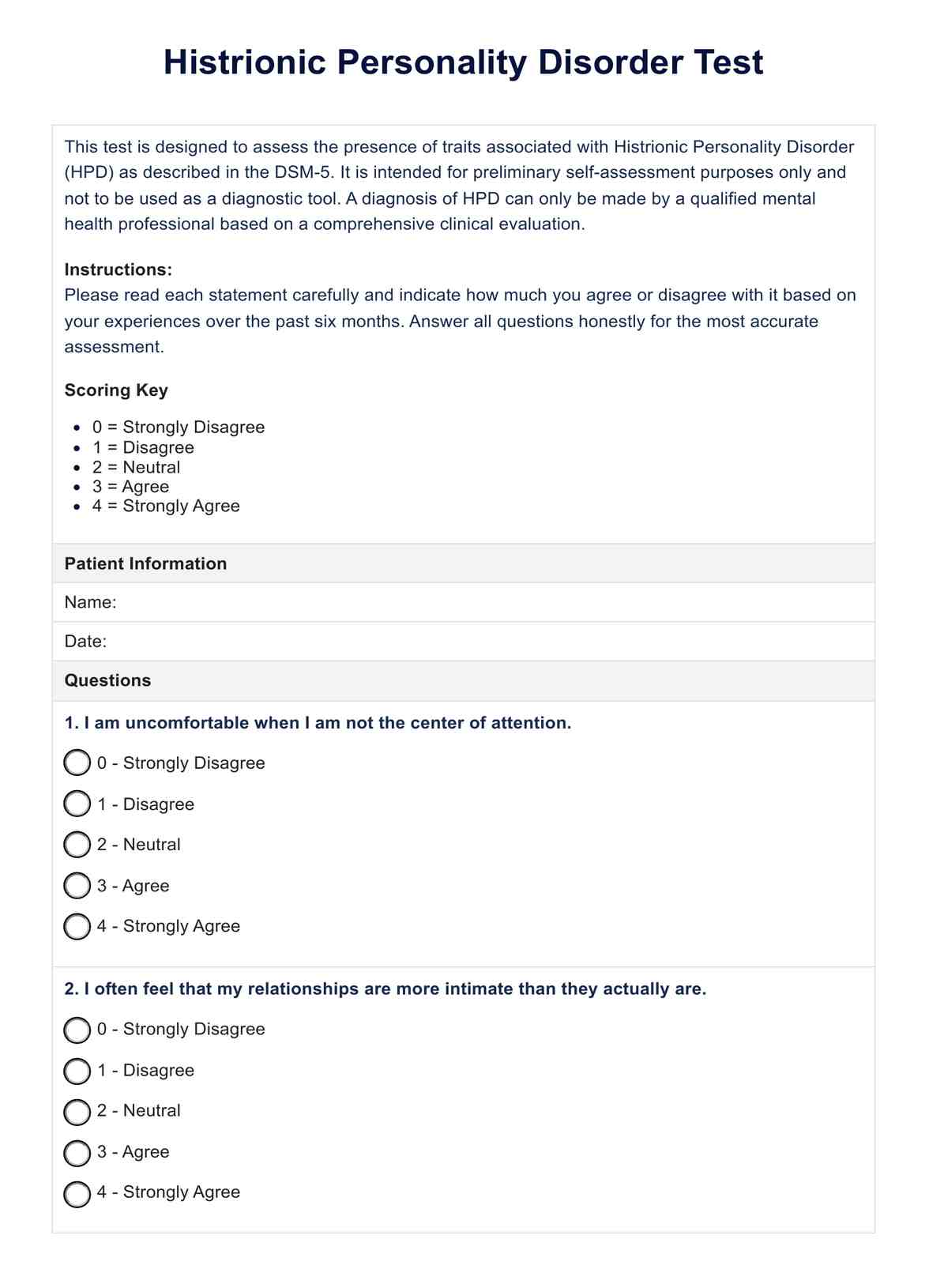Dramatic, emotionally expressive behavior and excessive attention-seeking actions are examples.

Histrionic Personality Disorder Test
Explore the diagnosis & management of HPD with insights on symptoms, DSM criteria, & effective strategies for mental health professionals.
Use Template
Histrionic Personality Disorder Test Template
Commonly asked questions
Treatment often involves psychotherapy, focusing on coping skills, improving self-esteem and communication skills, and understanding personal emotions and behaviors.
Yes, HPD can co-occur with other mental health conditions, making an integrated treatment approach necessary.
EHR and practice management software
Get started for free
*No credit card required
Free
$0/usd
Unlimited clients
Telehealth
1GB of storage
Client portal text
Automated billing and online payments











